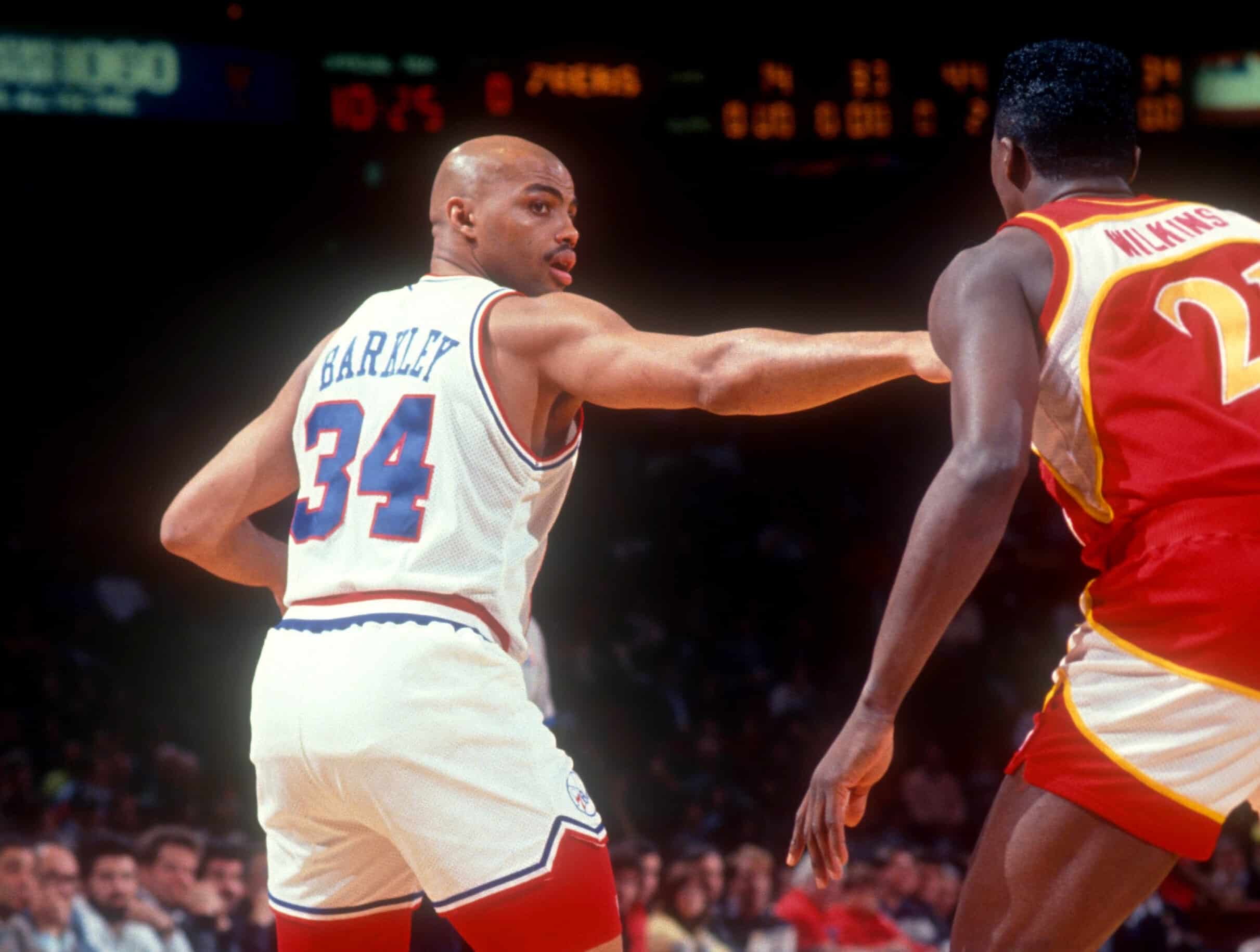NBA
How Good Was Charles Barkley?

The NBA has seen few characters as magnetic as Charles Barkley. His outspokenness and his work as an analyst have drawn plenty of attention over the years — so much so that his playing career can be overlooked.
Barkley, however, was a dominant force in the paint despite his lack of height for an NBA forward. He never won a title, but the lack of a championship does not diminish just how good he was.
Charles Barkley made an immediate impact as an NBA rookie

After a storied career at Auburn, where he averaged 14.1 points and 9.6 rebounds, the Philadelphia 76ers made Barkley the fifth overall pick in the 1984 NBA Draft. Unlike most high draft picks, Barkley had a golden opportunity to play for a winning team right away. The 76ers had plenty of veteran players, including Julius Erving and Moses Malone. Malone helped an overweight Barkley get into basketball shape and become a force in the league.
Barkley played in all 82 games as a rookie, averaging 14.0 points and 8.6 rebounds. For the next 11 years, Barkley put up better than 20 points per season and averaged double figures in rebounds. In his third NBA season, Barkley led the NBA with 14.6 rebounds per game. He also put up 23.0 points and made the first of 11 straight All-Star appearances.
Barkley played eight seasons with the Sixers, averaging 23.3 points and 11.6 rebounds. In June 1992, the 76ers traded Barkley to the Phoenix Suns, where he had four more All-Star seasons. After those four years, the Suns sent him to the Houston Rockets, where he closed out his career with four more seasons.
How good was Charles Barkley?
Charles Barkley gets a lot of heat for not winning a championship, but he certainly had one heck of an NBA career. Undersized at 6-foot-6, Barkley more than held his own in the paint, averaging 10-plus rebounds in 15 of his 16 seasons.
After his eight seasons in Philadelphia, Barkley has his best year in his first year with the Suns. During that 1992-93 season, Barkley put up 25.6 points, 12.2 rebounds, and a career-high 5.1 assists and was named the league’s Most Valuable Player. He also guided Phoenix to an NBA-best 62-20 record.
The Suns knocked off the Los Angeles Lakers and the San Antonio Spurs before outlasting the Seattle SuperSonics in seven games in the Western Conference Finals. They squared off against Michael Jordan in the Chicago Bulls in the NBA Finals but came up short in six games.
The next season, Barkley became the 10th player in NBA history to reach 20,000 points and 10,000 rebounds in a career, but the Suns lost in the first round of the playoffs to the Spurs.
Before the 1996-97 season, The Suns sent Barkley to the Houston Rockets, pairing him with Hakeem Olajuwon and Clyde Drexler and giving Houston an aging triple threat. In his first year with the Rockets, he made his final All-Star appearances despite battling injuries and appearing in just 53 games.
Barkley is a member of the NBA’s 75th Anniversary Team and was inducted into the Naismith Memorial Basketball Hall of Fame in 2006.











